TensorFlow – Installation
To install TensorFlow, it is important to have “Python” installed in your system. Python version 3.4+ is considered the best to start with TensorFlow installation.
Consider the following steps to install TensorFlow in Windows operating system.
Step 1 − Verify the python version being installed.
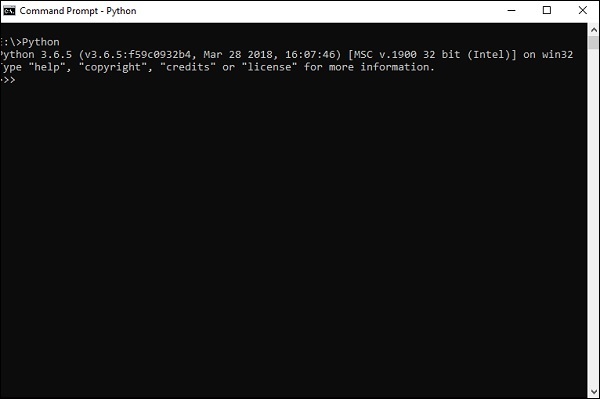
Step 2 − A user can pick up any mechanism to install TensorFlow in the system. We recommend “pip” and “Anaconda”. Pip is a command used for executing and installing modules in Python.
Before we install TensorFlow, we need to install Anaconda framework in our system.
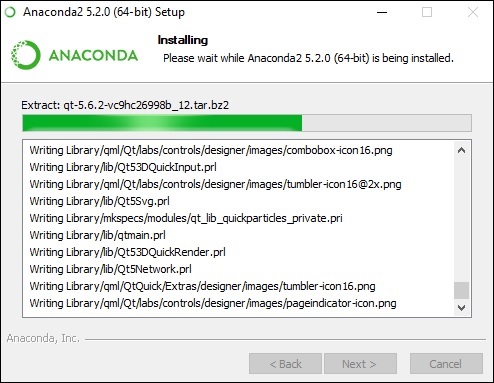
After successful installation, check in command prompt through “conda” command. The execution of command is displayed below −
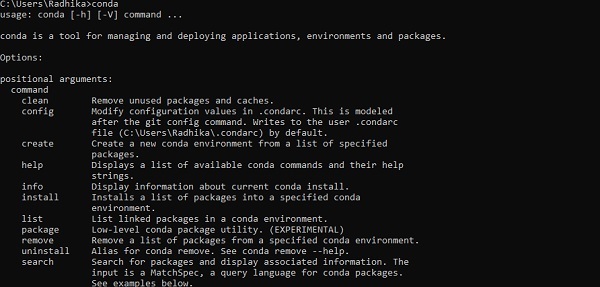
Step 3 − Execute the following command to initialize the installation of TensorFlow −
conda create --name tensorflow python = 3.5
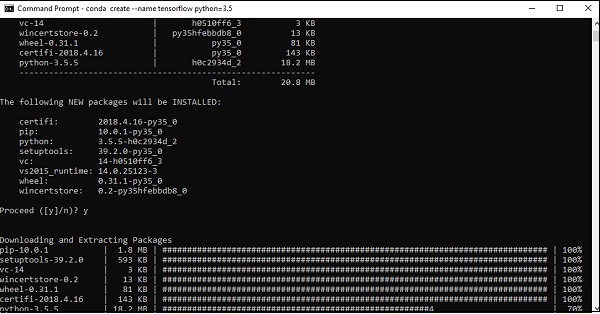
It downloads the necessary packages needed for TensorFlow setup.
Step 4 − After successful environmental setup, it is important to activate TensorFlow module.
activate tensorflow

Step 5 − Use pip to install “Tensorflow” in the system. The command used for installation is mentioned as below −
pip install tensorflow
And,
pip install tensorflow-gpu
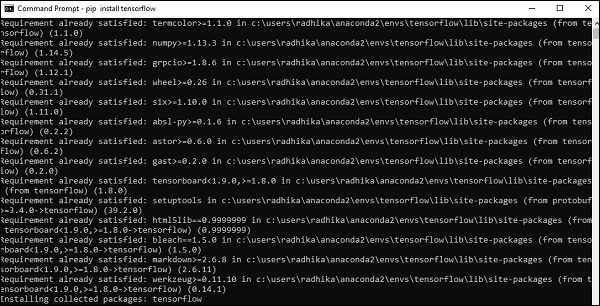
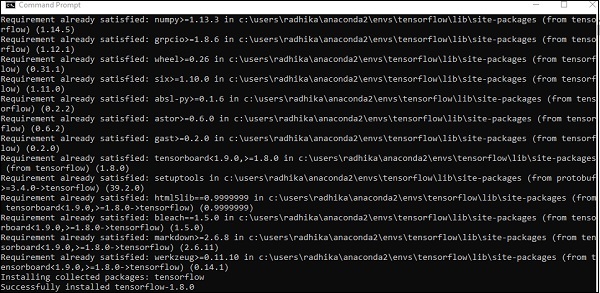
After successful installation, it is important to know the sample program execution of TensorFlow.
Following example helps us understand the basic program creation “Hello World” in TensorFlow.
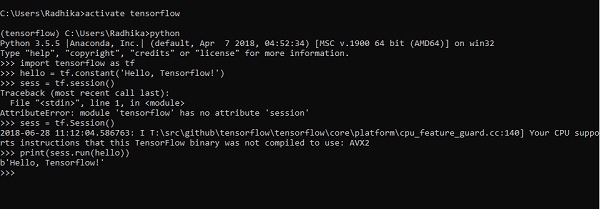
The code for first program implementation is mentioned below −
>> activate tensorflow >> python (activating python shell) >> import tensorflow as tf >> hello = tf.constant(‘Hello, Tensorflow!’) >> sess = tf.Session() >> print(sess.run(hello))